
Does Hashimoto’s Disease Affect the Oral Cavity?
Hashimoto’s disease, an autoimmune disorder that primarily targets the thyroid gland, is one of the most common causes of hypothyroidism in the United States. While most patients are familiar with fatigue, weight changes, and hormonal imbalances, fewer realize that this condition can also have an impact on oral health. Understanding how Hashimoto’s affects the oral cavity can empower patients to take preventive steps and seek timely care.
How Thyroid Function Influences Oral Health
1. Hormonal Imbalance and Salivary Flow
One of the most common oral health complaints among individuals with Hashimoto’s is dry mouth, also known as xerostomia. Reduced thyroid hormone levels can disrupt salivary gland function, leaving patients with insufficient moisture to protect teeth and gums. Without adequate saliva, the risk of cavities, bad breath, and gum irritation increases significantly.
2. Inflammation and Immune System Response
Hashimoto’s is an autoimmune disease, meaning the body’s own immune system mistakenly attacks healthy tissues. Inflammation that begins in the thyroid can contribute to systemic inflammatory responses, which may manifest in gum swelling, sensitivity, and even delayed healing after dental procedures.
Oral Symptoms Observed in Patients With Hashimoto’s
1. Dry Mouth and Its Consequences
Patients often report constant thirst, difficulty swallowing dry foods, and a sticky feeling inside the mouth. Beyond discomfort, this dryness creates an ideal environment for bacteria to thrive, leading to higher risks of tooth decay and periodontal disease.
2. Changes in Tongue and Taste
Hashimoto’s has been linked to glossitis, an inflammation of the tongue that can cause pain, swelling, or a smooth, shiny surface. Some patients also report altered taste sensations, which can affect appetite and nutrition.
3. Gum and Soft Tissue Concerns
Bleeding gums, oral ulcers, and increased sensitivity are not uncommon in those struggling with unmanaged thyroid disorders. These symptoms often worsen if combined with poor oral hygiene or a weakened immune system.
Research and Clinical Observations
1. Studies Connecting Autoimmune Diseases and Dental Health
Emerging studies suggest that patients with Hashimoto’s disease are more likely to report oral symptoms compared to the general population. While research is ongoing, the evidence highlights a strong need for integrated medical and dental care.
2. Dental Professionals’ Experiences
Many U.S. dentists have noticed patterns in patients with thyroid conditions. For example, a California dentist shared that patients with Hashimoto’s often need more frequent cleanings due to plaque buildup caused by dry mouth and altered saliva quality.
Patient Stories That Highlight the Connection
1. A Journey From Fatigue to Oral Discomfort
Lisa, a 42-year-old from Ohio, first noticed she was constantly thirsty and her gums bled when brushing. After a thyroid panel confirmed Hashimoto’s, her dentist and physician collaborated to address both her hormone levels and oral health, leading to significant improvements.
2. Managing Daily Challenges
Mark, a teacher in Arizona, struggled with tongue soreness and a constant metallic taste. With dietary adjustments, improved hydration, and prescribed thyroid medication, his symptoms eased, allowing him to regain his confidence in both speaking and eating.
What Patients Can Do to Protect Oral Health
1. Maintain Consistent Dental Hygiene
Brushing twice a day with fluoride toothpaste, flossing daily, and using mouth rinses designed for dry mouth can provide a stronger defense against cavities and gum disease. Patients with Hashimoto’s should be especially vigilant about these habits.
2. Manage Dry Mouth Proactively
Chewing sugar-free gum, staying hydrated, and using saliva substitutes can relieve the discomfort of dry mouth. Avoiding alcohol-based mouthwashes is also important, as they can worsen oral dryness.
3. Regular Dental Checkups
Because Hashimoto’s disease may elevate oral health risks, dental visits should occur at least twice a year. Dentists can detect subtle changes early, recommend fluoride treatments, and provide tailored solutions.
Lifestyle and Integrated Care
1. Nutrition for Thyroid and Oral Health
A balanced diet rich in vitamins A, C, and D, as well as selenium and iodine, supports thyroid function and strengthens oral tissues. Limiting processed sugar also reduces the risk of both cavities and systemic inflammation.
2. Collaboration Between Healthcare Providers
Patients benefit most when endocrinologists and dentists communicate. Integrated care ensures that systemic issues like hypothyroidism are managed alongside dental health challenges, creating a more complete healthcare plan.
3. Reducing Stress and Supporting Immunity
Stress management techniques—such as yoga, meditation, or simple daily walks—can improve immune balance and reduce inflammation, indirectly protecting both the thyroid and oral cavity from further complications.
Why Awareness Matters
Awareness of the link between Hashimoto’s disease and oral health issues helps patients take control of their care. Many people live for years with untreated symptoms, not realizing the effect on their mouths. By combining medical treatment with professional dental care, patients can achieve a healthier balance. For expert advice and personalized services, Family Dentistry Online provides trusted resources that help patients navigate both thyroid and oral health needs with confidence.


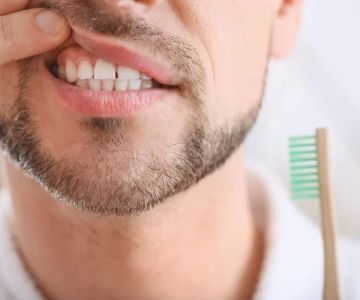
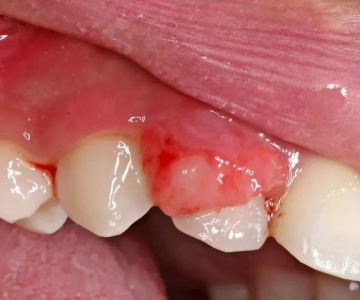
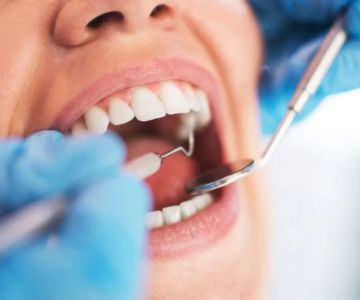
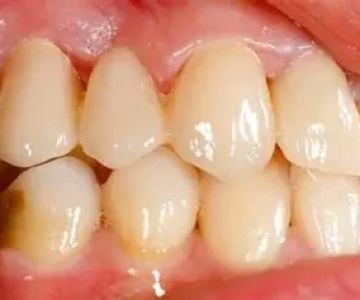

 Smile Experience Orthodontics5.0 (369 review)
Smile Experience Orthodontics5.0 (369 review) Devine Dentistry5.0 (416 review)
Devine Dentistry5.0 (416 review) Clove Dental Camarillo4.0 (225 review)
Clove Dental Camarillo4.0 (225 review) Southside Community Health Services4.0 (186 review)
Southside Community Health Services4.0 (186 review)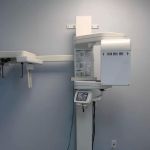 Gardena Dental Care4.0 (416 review)
Gardena Dental Care4.0 (416 review) ABC Dental4.0 (433 review)
ABC Dental4.0 (433 review) The Importance of Oral Health Education During Pregnancy for a Healthy Pregnancy
The Importance of Oral Health Education During Pregnancy for a Healthy Pregnancy Best Tips for Brushing Your Teeth Properly for Healthy Gums: Essential Techniques for Oral Health
Best Tips for Brushing Your Teeth Properly for Healthy Gums: Essential Techniques for Oral Health Why Skipping Dental Checkups Can Lead to Bigger Oral Health Problems
Why Skipping Dental Checkups Can Lead to Bigger Oral Health Problems Advantages of Porcelain Dental Restorations
Advantages of Porcelain Dental Restorations How Can Diabetes Cause Tooth and Gum Problems? Preventing and Managing Oral Health Issues
How Can Diabetes Cause Tooth and Gum Problems? Preventing and Managing Oral Health Issues Healthy Habits for Promoting Good Oral Health and Hygiene: Tips for a Healthy Smile
Healthy Habits for Promoting Good Oral Health and Hygiene: Tips for a Healthy Smile